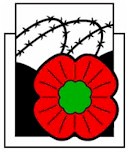Democracy and the Party System - Part I
This is a new feature I've started. Basically, I'm just going to post excerpts from a speech by Tanzanian President Julius Nyerere. It is about how democracy works in Africa, particularly Tanzania, using a one-party system rather than a multi-party system.
...Democracy, in Africa or anywhere else, is Government by the People. Ideally, it is a form of government whereby the people - ALL the people - settle their affairs through free discussion. The appropriate setting for this basic, or pure, democracy is a small community. The city states of Ancient Greece, for example, practiced it. And in African society, the traditional method of conducting affairs is by free discussion. Mr. Guy Clutton-Brock, writing about a typical African village community puts it neatly in the sentence I quoted at the beginning: "The Elders sit under the big tree, and talk until they agree..." In larger communities, however, government by the people is possible only in a modified form.
After pure democracy, the next best thing is Government by the People's Representatives. Where it is the affairs of several million people that are to be settled by discussion, it is obviously not possible for all the people to come together and take a direct part in the discussion. So, instead, we have a parliament in which a number of spokesmen, or Representatives, conduct the discussion on their behalf. And if these Representatives are truly to represent the people, they must be freely chosen by the people from among themselves. So free elections are the essential instruments of Representative Democracy.
The purpose of a general election, then, is to elect these People's Representatives. But, because of the historical circumstances of the countries in which Representative Democracy has been most highly developed, such elections are usually organized on a party basis. The electorate is offered a choice between contending parties. It could be said that the object is not so much to elect Representatives as to elect a Representative Party. The countries where this system works most successfully are those which have two major political parties...
I am now going to suggest: that, where there is one party, and that party is identified with the nation as a whole, the foundations of democracy are firmer than they can ever be where you have two or more parties, each representing only a section of the community!...
To Be Continued...




1 Comments:
Yeah, we totally have that picture floating around our campus too!! It's awesome.
Post a Comment
<< Home